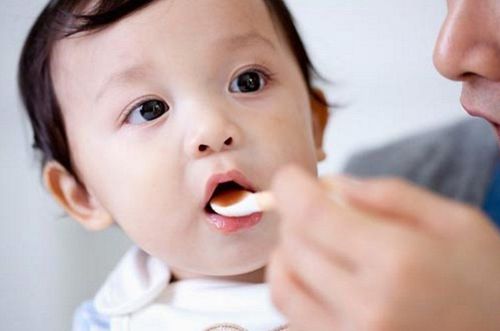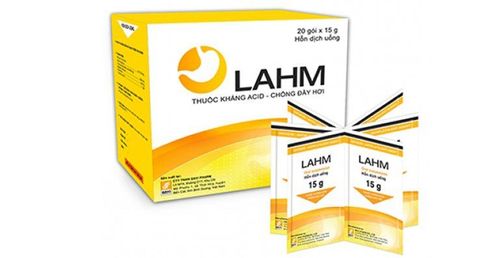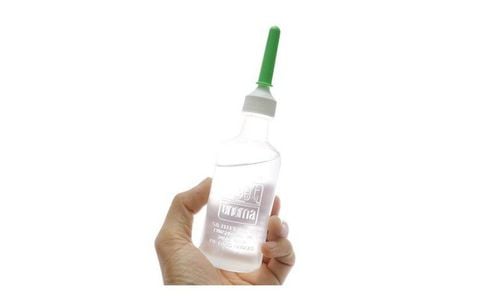This is an automatically translated article.
The article is professionally consulted by Gastroenterologist - Department of Examination & Internal Medicine - Vinmec Hai Phong International General HospitalConstipation is a common phenomenon at all ages, if constipation persists, the condition worsens without treatment, it will easily lead to hemorrhoids or dangerous diseases related to the digestive tract.
1. Causes of Chronic Constipation
Constipation is a very common health problem. This condition occurs when the intestinal system has difficulty in digesting and excreting stool. When the intestines work, they make movements to digest food called peristalsis. In patients lasting more than 4 weeks are classified as chronic constipation. Symptoms of prolonged constipation are usually: The number of bowel movements is less than 3 times/week, constipation lasts more than 12 weeks/year. The manure is solid, lumpy, dry and lumpy like goat manure. Every time it is difficult to have a bowel movement, anal pain is burning and it takes a lot of effort to push. In many cases, pushing too hard leads to the anal mucosa being scratched, causing bleeding, in addition, the stool may also contain mucus.
Constipation is common in all subjects regardless of gender, age, from adults, the elderly to children.
For young children, because the symptoms cannot be fully described to parents, when there are abnormal signs of frequent defecation frequency, hard stools, anorexia, bloating, and indigestion, parents should pay attention. idea.
Pregnant and postpartum women are also at risk due to hormonal and dietary changes.
There are many causes of constipation, but it can be divided into two main groups: Primary constipation and secondary constipation.
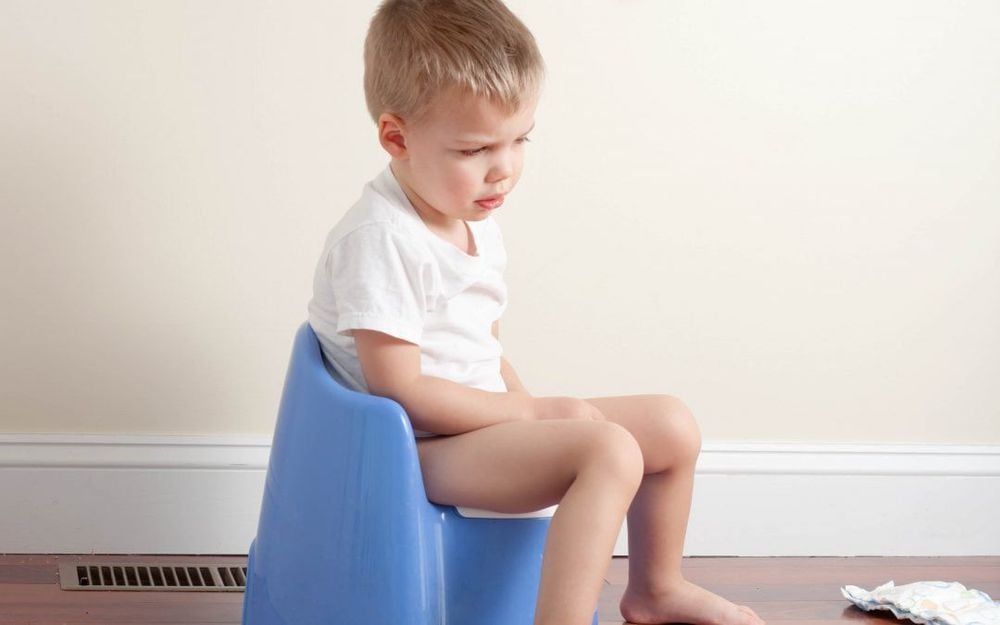
Táo bón dễ gặp ở mọi đối tượng không phân biệt giới tính, độ tuổi từ người lớn, người già đến trẻ nhỏ
1.1 Group of causes of primary constipation Divided into the following 3 categories: normal bowel motility constipation, slow bowel movement constipation and pelvic floor dysfunction.
Constipation with normal bowel movements is the most common type of primary constipation. Although stool passes through the colon at a normal rate, the patient may find it difficult to pass stools. Slow bowel motility constipation is characterized by decreased colonic motility, which occurs more commonly in female patients. Patients may have mild abdominal distention or palpable stool in the sigmoid colon. Pelvic floor dysfunction: Patients often complain of prolonged defecation, a feeling of incomplete bowel movements, or having to use pressure on the pelvic floor during defecation to allow stool to pass. 1.2 The group of causes of secondary constipation Due to an unreasonable lifestyle and diet include:
Not drinking enough water (making stools dry and hard); Insufficient fiber intake (fiber is found in cereals, fruits and vegetables); Drinking a lot of coffee, tea or alcohol (these have a diuretic effect, causing the patient to urinate a lot leading to relative dehydration, causing increased water absorption from the intestines and this makes stools harder, causing constipation); Eat foods rich in animal fats (including dairy products, meat and eggs), refined sugars; Ignoring the feeling of wanting to have a bowel movement, holding a bowel movement (meaning when there is a feeling of having a bowel movement but the patient ignores it, it may be because they are afraid to use public restrooms or because they are busy)... If this happens for a long time, after a while, the person may lose the feeling of wanting to have a bowel movement and cause constipation; Being sedentary can also cause constipation.

Có nhiều nguyên nhân dẫn đến táo bón
Systemic causes include: Hypercalcemia, hyperparathyroidism, hypokalemia, hypothyroidism, pregnancy.
Constipation is a common symptom during pregnancy that can be caused by a number of factors such as: Mechanical pressure of the uterus on the intestines, hormonal changes during pregnancy that slow down bowel movements, changes in diet , anal fissures, hemorrhoids, taking iron pills during pregnancy. Neurological disorders: Stroke, Hirschsprung disease, Parkinson's disease, spinal cord injury, head trauma. Connective tissue diseases: Scleroderma, lupus. Some common medications that can cause constipation include: Antidepressants, metals, anticholinergics, antacids (eg, aluminum and calcium compounds), diuretics, calcium channel blockers (eg. verapamil), nonsteroidal anti-inflammatory drugs (eg ibuprofen and diclofenac), narcotic drugs (eg codeine and morphine), many psychotropic drugs, anticonvulsants... eg depression, anxiety) can also contribute to the development of constipation. Older adults are prone to constipation for the following reasons: Poor diet and inadequate water intake, lack of exercise, side effects of medications, poor bowel habits.
2. What are the complications of chronic constipation?
Chronic constipation causes continuous damage to the anus which is the cause of internal hemorrhoids, external hemorrhoids or difficult-to-treat rectal diseases, increasing complications in chronic patients such as high blood pressure, people with cardiovascular disease. , cirrhosis, ascites...Complications of prolonged constipation include:
Hemorrhoids: Prolonged constipation is one of the "culprits" causing hemorrhoids, the phenomenon of increased intra-abdominal pressure during exertion Straining to have a bowel movement makes the hemorrhoids get bigger and bigger, each time there is blood with stools. Intestinal obstruction: If the colon has to store for a long time, solid stools can cause semi-obstruction or intestinal obstruction and lead to symptoms such as intermittent abdominal pain, abdominal distension, no smell or defecation. OK, palpable solid stool. Toxic: Long-term stagnation of feces in the colon will create conditions for harmful bacteria to grow and produce harmful substances that are absorbed and absorbed into the blood and will gradually lead to chronic poisoning. Anal - Rectal Cancer: Due to the dry and hard nature of the stool of constipated people, it has a higher concentration of toxins and carcinogens such as deoxycholic acid, lithocholic acid and nitroso complexes (NOCs) than feces. of ordinary people. The long time the stool stays in the rectum increases the contact time with the rectal mucosa, which is also a cause of cancer. Rectal prolapse: Prolonged constipation makes the tissues of the rectum often stretch and stretch, which can gradually cause prolapse of the lining of the anal canal, later pulling on the glandular lining of the rectum. rectal prolapse.
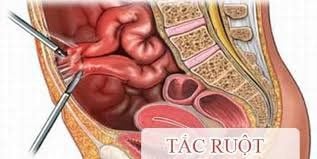
Nếu trong đại trực tràng phải tích trữ lâu ngày khối phân rắn có thể gây ra hiện tượng bán tắc ruột hoặc tắc ruột
3. How to care and treat constipation
The key to treating most patients with constipation is dietary modification, which includes:Increasing fiber intake: Fiber is available in a wide variety of natural sources such as fruits, vegetables, and fruits. cereals. Using dietary fiber has a nutritional advantage over pure fiber supplements. However, when advising patients to eat more fruits and vegetables is sometimes unsuccessful, it is possible to supplement with pure fiber such as psyllium or methylcellulose. In general, fiber supplements are safe and effective if you drink enough water. They are not laxatives and must be taken regularly (whether or not you are constipated) to help you avoid future constipation. Increase fluid intake: Patients should drink at least 8 glasses of water per day (1.5 to 2 liters of water). Reduce the use of foods that cause constipation such as foods rich in animal fats (including dairy products, meat and eggs), refined sugars, coffee, tea and alcohol. Exercise: Try exercises that work from the knees to the chest. These positions can trigger bowel movements. Practice for about 15 minutes a day. Go to the bathroom at the same time each day, after meals, and allow enough time for defecation. If these initial measures fail, doctors may prescribe some short-term laxatives. Patients should consult their doctor before using any medication. There are several common laxatives such as:
Polyethylene glycol (Forlax) is an osmotic laxative that is not absorbed by the intestines, it traps water in the intestines, making stools softer. Linaclotide (Linzess) stimulates receptors located on the villi of the small intestine, producing an isotonic solution, which makes stools softer and initiates bowel movements. Unabsorbable sugars such as lactulose and sorbitol. Saline laxatives such as magnesium hydroxide, or sodium phosphate are not recommended if the patient has kidney failure. Treatment of structural causes of secondary constipation such as anal fissures, hemorrhoids, semi-obstruction...

Giảm việc sử dụng thực phẩm gây táo bón như thực phẩm giàu chất béo động vật
Please dial HOTLINE for more information or register for an appointment HERE. Download MyVinmec app to make appointments faster and to manage your bookings easily.




